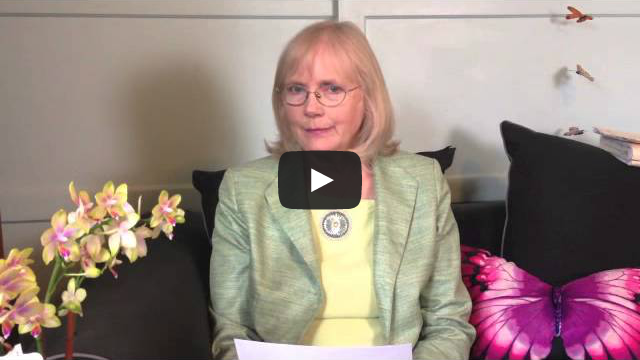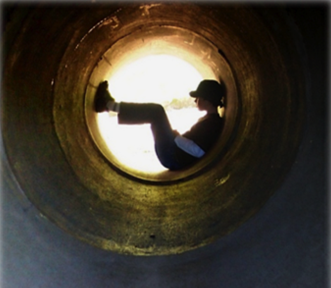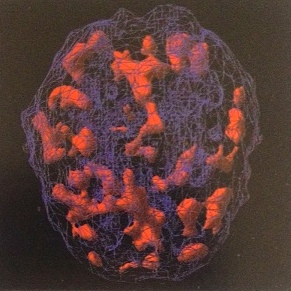Approaching Depression or Bipolar Disorder with EMDR.
What is EMDR Therapy like for treating Depression or Bipolar Disorder?
Depression or Bipolar Disorder are not simple things, or you could have overcome it easily. They often have multiple contributing factors. This article will give you many possibilities. Hopefully some of them are new to you.
Recent evidence by neuroscientists indicate that depression is caused by stressful events that cause micro-injuries in the brain. This results in an inflammation response. It is well known that stressful experiences often initiate bipolar depression.
For more information about this, link to an article in this website about
the findings of Karen Wager-Smith, PhD and Athina Markou, PhD
If stress does seem to be an instigator or contributor to your depression, EMDR Therapy has been proven helpful for stressful or traumatic events and the depression that goes along with them. It is well-established that though bipolar disorder may have genetic contributors, the condition is originally activated by stress. By “processing” these experiences through the EMDR therapy protocol, the negative memories, self-beliefs, emotions and physical sensations are desensitized. They gradually become less upsetting and feel less significant. Positive conclusions about yourself become stronger, spontaneously, through the EMDR processing.
An stage of the EMDR Therapy Early Protocol is called “Emotional Circuit Clearing.” It helps people become acquainted with the life-preserving or life-enhancing purposes of the emotions. This is a protocol that every person could benefit from. It can be especially valuable for depressed persons.

One client who often had intense depressions that lasted a minimum of 4 days reported that the next time she felt depressed, she didn’t try to resist it or avoid it. She allowed herself to relax and feel the depression, and then learn what she was sad about. To her amazement, the depression lasted only one hour!
There is research to indicate that stress-caused depression responds well to EMDR, but more research is needed. More research attention is going in this direction, so the next few years will be very important in shedding more light on this area.
Cognitive Behavioral Therapy (CBT) has also been demonstrated to help depression. If, however, you have tried it and it hasn’t worked, EMDR Therapy is an alternative well worth trying. In general, psychotherapy has been shown to work better than meds for depression. It should be included in any treatment plan for depression.
Research published in 2014 demonstrated that EMDR Therapy combined with CBT produced a much higher remission rate than CBT Therapy alone.
Medications
Dr. Wager-Smith, in the above-linked article, gives information about three meta-analysis of anti-depressant research. The important conclusion about this research is that medications can be life-saving for severe depression. Additionally, the three studies reviewing all the research on the topic found that there is not good evidence that medications help with mild or moderate depression.
Bipolar Disorder
Medications have, however, been demonstrated to help bipolar depression significantly and to be life-saving for that condition.
Bipolar Disorder was historically called Manic-Depression. It implies moving from the highs of mania (high energy excitement that can be impulsive and rather chaotic) to the lows of depression. The brain scan of bipolar disorder at left is found in Daniel Amen’s “Brain Atlas.” It helps us understand how a person could get excited intensely about one thing, and not be able to keep the focus going. These overactive areas are separate, not connected to each other.
Sadly, some people find the side-effects of anti-depressants to be depressing themselves. They rebel against “medication compliance.” Others keep trying for the best medication, or combination of medications for their constitution. The best solution for severe depression will give fewer side-effects and more help getting back to your strengths. In that case, meds can be a short-cut to healing, and a help when you balance it with psychotherapy. EMDR therapy for stress- or trauma-based depression can get at the underlying roots of depression. Then depression might be eliminated or at least greatly reduced, with good self-care skills in place to cope when a depression does come. EMDR Therapy can also be used to focus on what you find stressful or traumatic about your medications. This may help you to tolerate them better.
Good Self-Care and Learning New Skills
Just as we need for healing from any kind of condition, making our own self care a priority is very important in healing depression. Seven options to consider:
1. Understand how stress and trauma affect us. Read Getting Past Your Past by Francine Shapiro, PhD. Dr. Shapiro is the developer of EMDR Therapy. She published the first research about it. This book is a self-help book that can give you techniques to help you right away. Often people who have read or are reading the book seem to require less sessions. They are already doing “resourcing techniques” that connect them with their strengths.
2. If you feel you cannot do anything, and just want to lie in bed, according to Karen Wager-Smith, that is natural. Your brain is going through an inflammation response, producing sickness behaviors. If we respect our need for rest, it is wise. You might try an added help for restorative sleep by using an “Earthing sheet.” It’s been shown to help 2/3 of a sample of 12 persons to increase their natural melatonin production. After sleeping well, you may now feel like exercising is posible. Exercise helps to clear toxins from the body through sweat and deep breathing. It, like EMDR Therapy, is actually “bilateral stimulation” for the brain helping it to become more optimal. See article by psychiatrist Tracy Latz, MD on the value of grounding:
How Earthing Helps Her Patients
3. A good diet that includes dark leafy greens, quality protein, plenty of fruits and vegetables, and ample pure water helps you feel better by meeting your nutritional needs in a balanced way.
4. Get a medical evaluation to see if you may have a thyroid problem. This can be a hidden cause of depression and energy problems.
5. Naturopathic doctors are medical doctors with additional training in the digestive system and natural solutions to health problems, including depression. Their thorough evaluations may help to uncover another physical contributor to your depression.
6. If you live in a climate or work in a setting where you don’t get enough light, you may have SAD (Seasonal Affective Disorder). In that case, purchase lights designed to give you a greater dose of the light you may need for a better mood. Google “lights for Seasonal Affective Disorder.”
7. A regular Yoga practice can be helpful in overcoming moods. See Yoga for Depression by Amy Weintraub for more info.
Building a Better Support System
Many people with depression report feeling isolated – because they have become isolated, gradually making choices that remove themselves from others. Bowen Family Systems Theory calls this pattern of behavior “distance.” It is highly associated with depression. But the good news is it gives a natural antidote: connection. This will feel odd, awkward, and “not right” at first, but give it a try. Then persist in giving it a try daily or at least every other day, or once a week, if that is all you can do at first. It will make a major difference in overcoming depression, or coping with it when it speaks to you. In fact, Bowen found connection alone helps to inoculate against stress. It is recommended as essential to health and well-being to every person on the planet – not just those with depression. A good introduction to Bowen Theory is the book by Roberta Gilbert, MD:
Also, if you join our newsletter mailing list, you will receive a brochure called “Bowen Theory Made Ridiculously Simple.”
How to Overcome Distance
Connect with people, let them know you will need some added support, and ask for specific little things. Eye contact with caring people has been proven to help with depression. So get together with kind, understanding people you trust. Examples of support you might ask for:
a. Remind me of my strengths.
b. Remind me of our good times.
c. Let’s go to nature together — mountains, desert, ocean, plains, a lake or river, etc.
d. Go for a walk, hike or bike ride together.
e. Let’s cook a meal together.
f. Will you garden with me? Do you want help weeding or watering your garden?
g. Could I ask you to do laundry, or clean together? It’s just feeling too overwhelming to tackle it alone.
h. Or ask, please pray for me. (Research has proven that it helps, even if those who are prayed for don’t know that people who don’t know them are praying for them on the other side of the world.)
We wish you very well in healing from depression, restoring your strengths, gaining confidence and hope, one step at a time. We EMDR therapists know it is possible. We see it happening in our offices. Our clients often report the progress they made in the past week.
This website lists EMDR therapists with the highest credentials of any EMDR directory. All have been EMDRIA-Certified. Thus, they give you the benefit of the full EMDR protocol.. Research has proven that the best results come from the dedication to the full eight-phase EMDR protocol.
To Find our Depression or Bipolar Specialists:
Please click on FIND A THERAPIST and search by zip code or city and specialty (depression or bipolar).
If we do not yet serve your community, please go to www.emdria.org, FIND A THERAPIST, and type in your zip code and click on CERTIFIED EMDR THERAPIST and choose the specialty of DEPRESSION.





